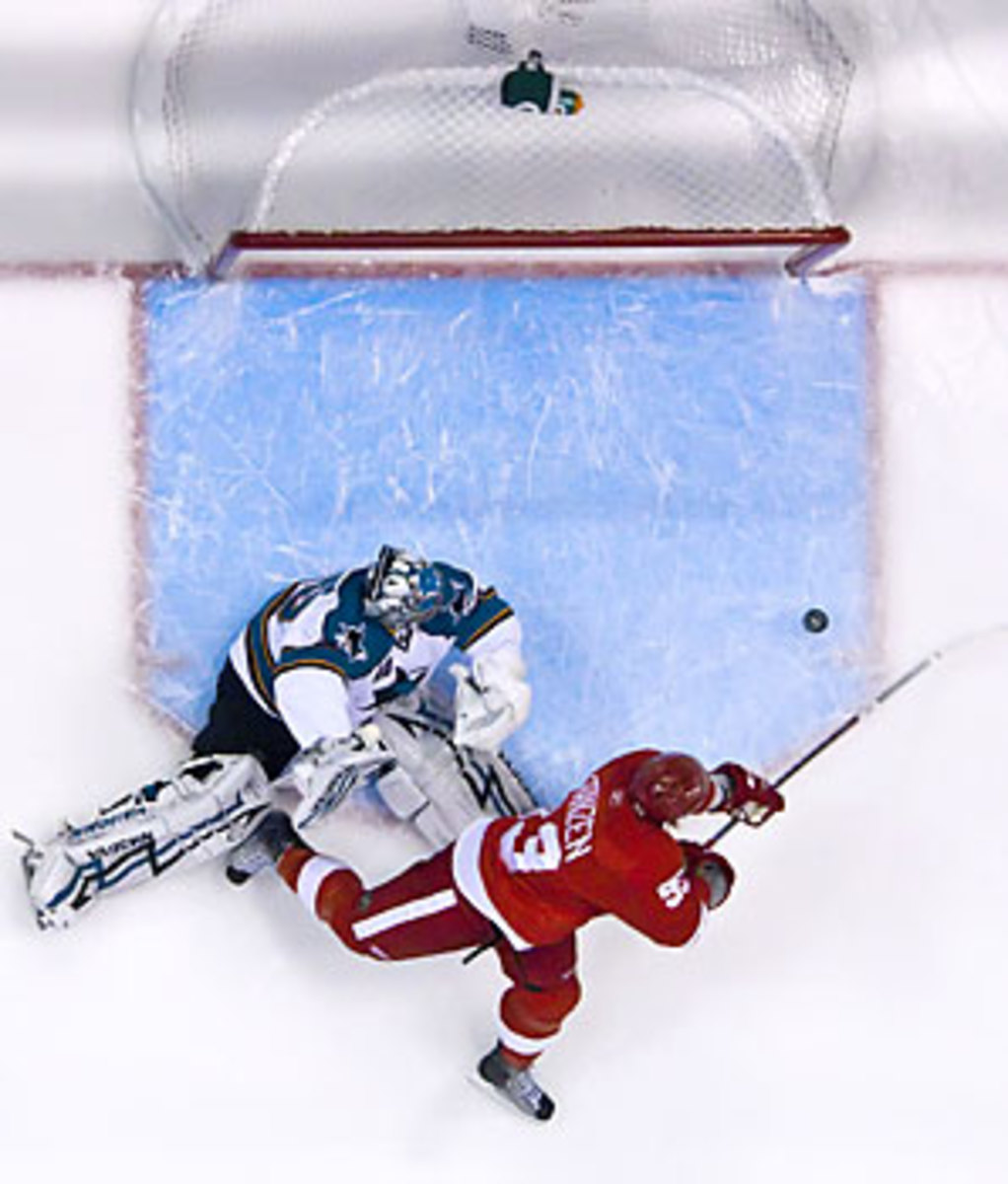Wings, Canadiens hope momentum is not a myth in playoff series
Momentum from game to game in the playoffs is a bit of a myth. Each outing has it's own rhythm and pace and flow. And outcome. One doesn't really impact the other. Certainly Sharks coach Todd McLellan hopes that's the case after his team flopped 7-1 in Game 4 in Detroit.
Actually, McLellan echoed that sentiment in the Western Conference quarterfinals as his team was initially scuffling against the plucky Avalanche before prevailing in six games. He doesn't believe there is momentum from game to game. Playoff hockey is more about execution, match-ups and adjustments. And goaltending. That is the wild card played at playoff time. The Red Wings have rookie Jimmy Howard backstopping them and while he has been mostly solid, he has been more up-and-down that he showed during the regular season.
Still, Saturday's Game 5 in San Jose isn't so much about Howard as it is his counterpart, Evgeni Nabokov. He was on a nice run in goal, playing in top form until getting the hook in Game 4. His history is marred with such outings at critical times, including sub-par starts in the Olympics in February. His funk extended to his return to NHL action until he finally reestablished his upper level. The problem is that it took Nabokov a couple of weeks to right himself. He doesn't have that luxury during the playoffs. How he begins Saturday's game will have a profound effect on the outcome. Any sign of the shakes will cut both ways, emboldening the Red Wings and niggling at the confidence of the Sharks.
The Red Wings still face elimination down 3-1, but Game 4 star Johan Franzen put it best when asked if the Red Wings made this a series after his six-point effort, "No we didn't make this a series by winning this game, but we can make it a series by winning Game 5." Well put, and everyone involved is aware of that possibility. Including Nabokov.
Meanwhile, Montreal and Pittsburgh are tied at two, after the Canadiens played their best period in the third period of Game 4 in turning a 2-1 deficit into a 3-2 win against the Stanley Cup champion Penguins. They outshot the Penguins 16-9 after registering only nine shots through the first 40 minutes. Both Canadiens' coach Jacques Martin and Penguins' bench boss Dan Bylsma espouse the execution line of reasoning game to game during these playoffs, with one interesting twist. Bylsma believes there is a case for momentum from one result to the next late in a series.
He didn't define "late", but his rationale is understandable. Once you've gone head-to-head with the same opponent for several games in a row, some things move beyond adjustment. For instance, if you continue to tweak your attack and your execution is at its peak and you still manage to come up short, that, potentially, has a carryover effect. Entering Game 5, the Penguins have only put four pucks past Jaroslav Halak in the past three games and the Canadiens have won two of the three. Sidney Crosby has no goals in his last five playoff games, matching his longest goalless stretch in post-season play, and hasn't registered an even strength point in this series.
In other words, the Canadiens are doing exactly what they want. Defensemen Josh Gorges and Hal Gill are neutralizing the Penguins' captain and offensive catalyst. They are forcing the Penguins' other players to provide the margin of victory. To that end, the Pens have fared well, with 11 different players scoring. But, none from Crosby and with the series tied the Canadiens would love to test the theory of momentum heading home with a 3-2 lead.
At that point, I think it would be safe to qualify it as late in the series.






